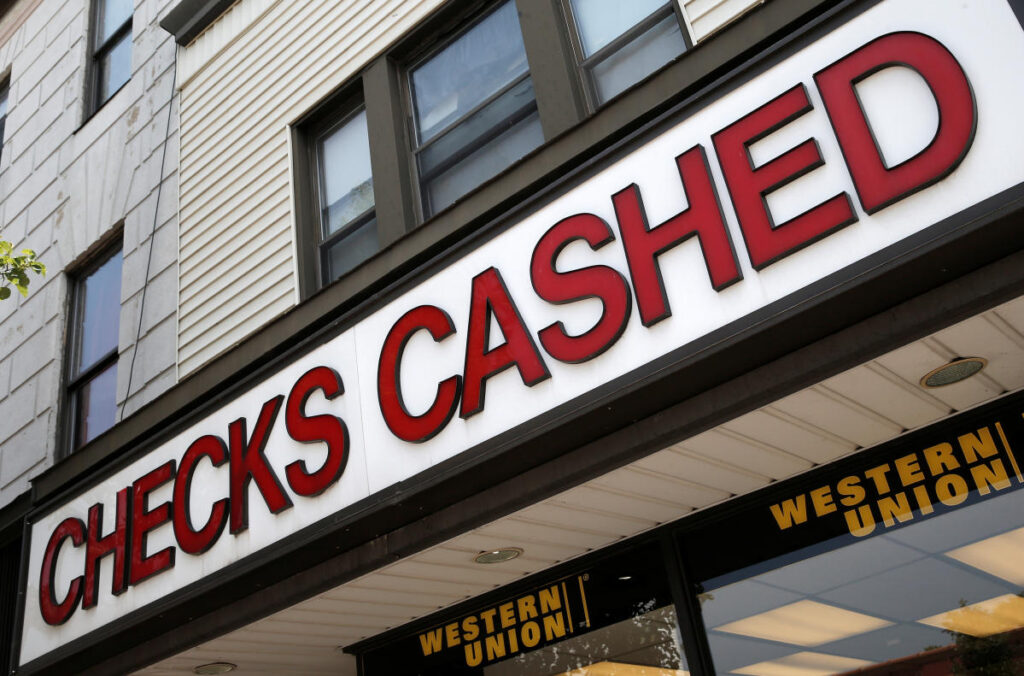Millions of Americans face the challenge of being unbanked, lacking access to traditional banking systems. According to the Federal Deposit Insurance Corporation (FDIC), as of 2023, approximately 5.6 million households in the U.S. were without a bank account. While cashing checks typically occurs through bank accounts, those who are unbanked still have several alternatives available. Options include cashing checks at the issuing bank, utilizing retail stores or check-cashing establishments, and turning to prepaid debit cards. Despite these alternatives, it’s essential to consider the potential high fees associated with cashing checks outside of a bank account. Conversely, opening a checking account can provide a cost-effective solution with additional benefits, making it a viable consideration for those who are currently unbanked.
Cashing a check by depositing it into one’s own checking account remains the most straightforward method. However, if that is not feasible, several options exist in the marketplace. Many retailers such as Walmart and grocery stores offer check-cashing services for a fee. Walmart, for instance, charges a maximum of $4 for checks up to $1,000 and up to $8 for checks exceeding that amount. Alternatively, check-cashing stores like Check Into Cash and Money Mart provide dedicated cashing services that typically charge a fee calculated as a percentage of the check amount, generally ranging from 2% to 4%. Another option includes using prepaid debit cards, which allow users to cash checks and add the funds directly to the card. For example, Green Dot Bank offers this service with fees only applicable for expedited deliveries of funds.
For individuals without access to a bank account, cashing a check at the issuing bank is another alternative, provided there is a branch in proximity. While this method can be convenient, it often comes with fees ranging from $5 to $10 per transaction. The barrier of lacking traditional banking access also complicates the prospect of opening a checking account. Individuals may encounter challenges, particularly if they lack a Social Security number or a government-issued photo ID. However, many banks offer workarounds for those facing these issues, indicating that the potential benefits of having a bank account greatly outweigh these challenges.
Possessing a checking account offers significant advantages beyond mere check-cashing privileges. One notable benefit is the ability to receive direct deposit payments, which eliminates the need to manage paper checks. This automation directly deposits wages into one’s account, providing instant access to funds via an ATM or debit card. Furthermore, modern banking technologies allow for mobile check deposits, enabling users to simply capture a photo of a check using a bank’s app. This feature typically incurs no fees and allows for prompt access to funds, often within one to two business days.
Perhaps the most compelling reason to consider opening a bank account is the assurance it provides in terms of insurance coverage. Deposits in banks and credit unions are often insured up to $250,000 per depositor, per institution, which protects customers from losing their money in the unlikely event of bank failure. For those who may believe that a lack of proper identification precludes them from opening an account, it is important to note that some banking institutions are amenable to alternative forms of identification. For example, certain banks may allow opening accounts with documents other than a ID, such as a passport number, thereby expanding the inclusivity of banking services.
Even for unbanked individuals, accessing services like cashing a check at Walmart is feasible. The retailer allows check cashing without a bank account, charging fees of $4 for checks up to $1,000 and up to $8 for those greater than that amount. Alternatively, cashing a check at a non-account bank can be challenging and potentially come with higher fees if the check can’t be cashed directly at the bank of issue. Overall, while speed and convenience are maximized by cashing checks through one’s own bank, there are viable options available for those without bank accounts, although the benefits of being banked are substantial and should not be overlooked.

